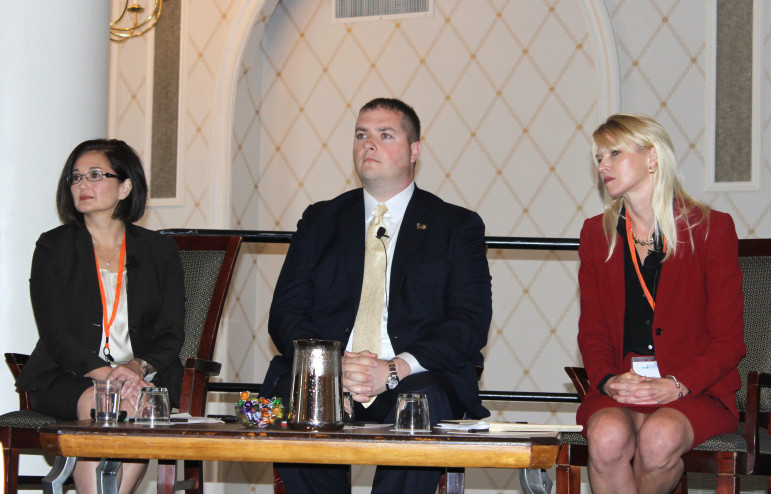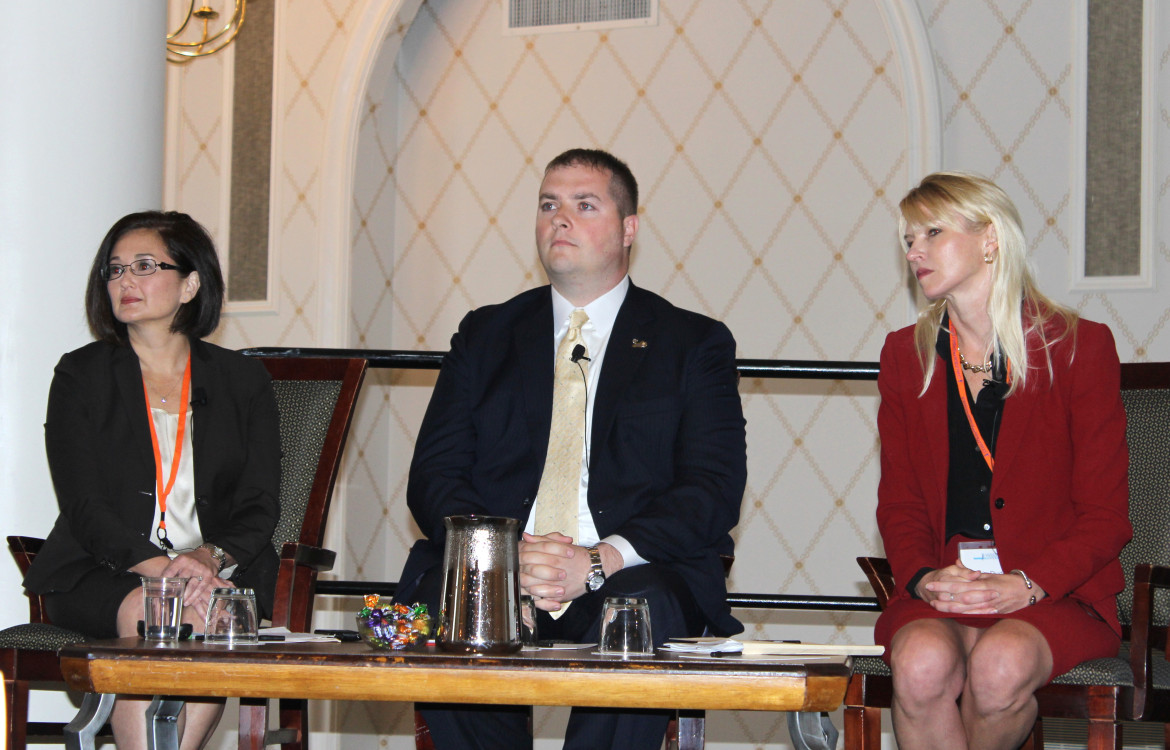
Christine Milo / JJIE
Panelist Senator Westerfield (D- Kentucky) and Laurie Dudgeon, Director of the Administrative Office of the Courts of Kentucky, answer questions during the Comprehensive State Juvenile Justice Reform: Better Investments and Better Outcomes Panel. Moderator Sonja Hallum of Pew Charitable Trusts sits far left.
WASHINGTON — With more than 300 participants, representing 44 states and territories, the Coalition for Juvenile Justice (CJJ) held its annual conference here last week. Attendees included governor-appointed state advisory group members, judges, juvenile justice practitioners, advocates and youth.
Robert Listenbee, administrator of the federal Office of Juvenile Justice and Delinquency Prevention (OJJDP) delivered the conference’s keynote address, discussing his goals for OJJDP, as well as giving an update on its current operations. Listenbee highlighted 10 areas that are of utmost importance to OJJDP. Listenbee spoke at length about the need for continued and strengthened cooperation with law enforcement.
“By working together we can embark on new training programs and curricula that can help them (law enforcement) understand how to interact with kids more effectively,” he said.
Another key point Listenbee touched on was the fact that juvenile justice reform can only happen through a developmental approach, using the power of science and neuroscience.
Listenbee also pointed out that the American Psychological Association, the Supreme Court, and the National Academy of Science is behind the research and said that it is high time the rest of the field follows suit.
Listenbee made a point of saying how strongly this administration and specifically the U.S. Department of Justice feels about reauthorization of the Juvenile Justice and Delinquency Prevention Act (JJDPA). Listenbee said he was pleased with the progress that has been made on reauthorization of the JJDPA.
Following Listenbee was a panel on Comprehensive State Juvenile Justice Reform. Panelists included State Sen. Whitney Westerfield (R-Ky.) and Laurie Dudgeon, Director of the Administrative Office of the Courts of Kentucky. Sonja Hallum of Pew Charitable Trusts moderated the panel. The panel focused on reaching better outcomes from juvenile justice systems through data-driven and consensus-based policy development processes. The panelists both spoke on the success they have achieved within Kentucky through this innovate reform model.
The morning workshops included one entitled, Transforming the Justice System by Partnering with Families. The workshop gave the audience the opportunity to hear from family members who have been through the juvenile justice system. Panelists spoke on the difficulties that families and system stakeholders experience when dealing with one another. The panel outlined a road map forward to making family-system partnerships a reality.
Another workshop that took place during the afternoon session was entitled Innovations in Community Engagement. The panel consisted solely of members from the Illinois Juvenile Justice Commission (IJJC) Youth Advisory Board.
The final day of the conference, Saturday, included plenary discussions on juvenile justice system reforms, such as juvenile sentencing reform and disproportionate minority contact.
Financial supporters of The JJIE may be quoted or mentioned in our stories. They may also be the subjects of our stories.
